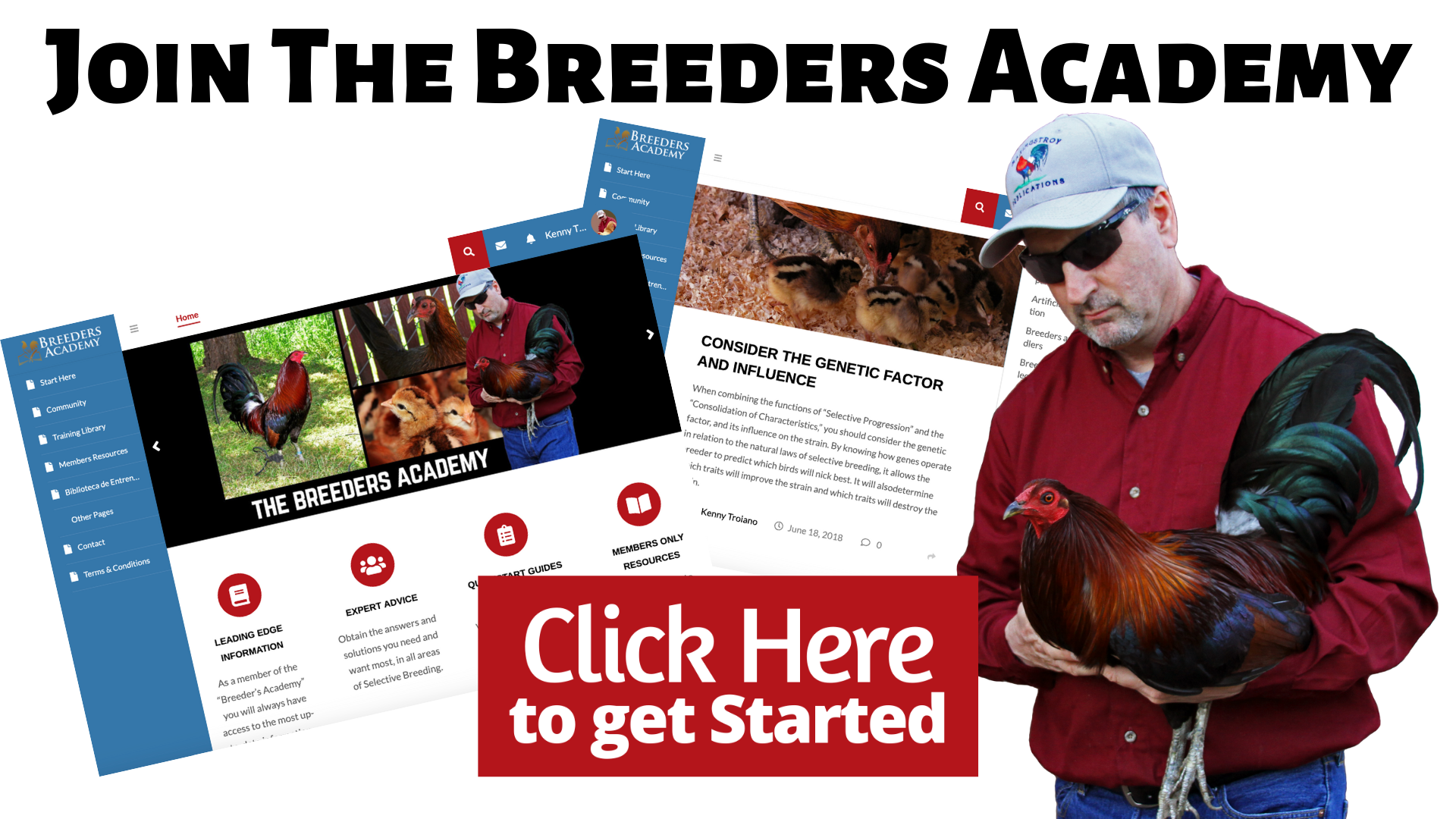By Kenny Troiano
Copyright © 2020 by Kenny Troiano/Maximus Troy Publications
There are many ways of entering this hobby. Quite often it’s the family interest, where experience and good brood fowl have been passed down to the next generation. Other times it’s from knowing the right people, or having the right connections, such as in friendship or acquaintances.
Poultry shows are perfect places to meet breeders and ask questions. I find that the general public is fascinated by American Games. I have met many who were “hooked” after attending their first American Game exhibition.
Breeders of American Games should encourage and support those who show an interest. Show them how to breed and raise proper American Games. Take them to the shows so they can see, firsthand, all the different varieties of gamefowl that are available.
By allowing the general public to see these magnificent fowl, up close, we stimulate their interest. By showing them how responsible we are as breeders, we gain their support. By showing them how important these fowl are to our history, as well as the future of all fowl, we encourage them to join us in our fight to preserve American Games for future generations.
By helping others to become raisers and breeders of American Games, our numbers will grow. The larger our membership, the greater will be the participation. The more participants we have, the greater the contribution.
The existences of the American Game breed rest in our hands. For without a strong, growing membership, we have no power to influence others. And without the proper influence, American Games will become nothing more than a memory.
If you’re new to American Games, and have a chance to visit a friendly breeder that happens to live in your area, I urge you to take the time and talk with him for a while. This will give you a feel for what this hobby is all about, and maybe he will furnish you with some good brood fowl and plenty of worthwhile advice. An experienced breeder is what you need to get started on the right foot.
A word of advice to beginners: when starting out, there is no need to spend a lot of money on fowl. You have plenty to learn before making that leap.
I hope you enjoyed this weeks “Article,” and that the information which I provide helps you in the eventual improvement and advancement of your fowl. It has always been my objective to inspire more breeders, and to provide breeders the tools they need to create the fowl of their dreams, and achieve their goals. It’s a long journey, but a worthwhile one.
Sincerely, Kenny Troiano

